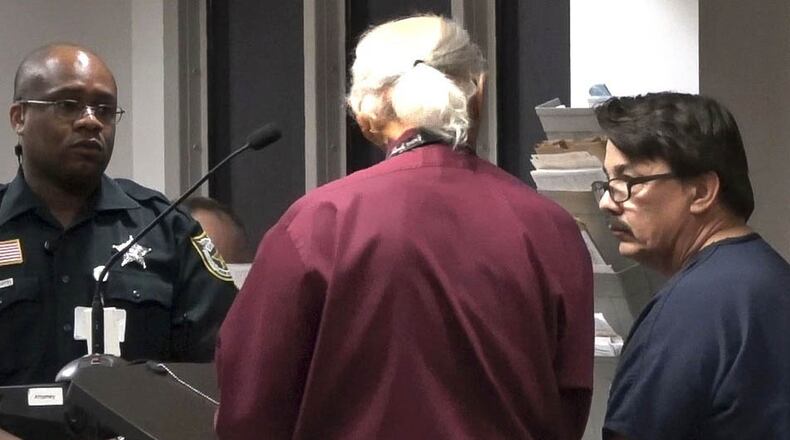In the days after an Uber driver was arrested for allegedly raping one of his riders in South Florida, many have had questions about the service’s safety.
On May 7, Jupiter police arrested Gary Kitchings, 57, on charges of kidnapping, burglary and sexual battery after a 37-year-old woman reported he assaulted her in a ride from Sunfest.
» RELATED: Florida Uber driver accused of raping 14-year-old girl
The woman sat alone in the car in the front seat when he made advances at her, according to police. He then forced her to perform a sex act, threatening her by saying he had a gun underneath his seat, investigators said. When he dropped her off at her residence in Jupiter, she said he followed her in and raped her in her bedroom.
Kitchings is also a father of an adopted child and a “house parent” at the KidSafe Sanctuary in suburban West Palm Beach.
Many asked how someone accused of such a heinous crime could have ever been approved by those at Uber — a ride-sharing app that connects people who need rides to a nearby driver with the tap on their phone — or at his other job working with foster girls.
» RELATED: Cops: Fake Uber driver sexually assaulted woman leaving Buckhead bar
To drive for Uber, drivers need clear motor vehicle and criminal records. Kitchings had no prior criminal history, court records show.
His lack of a criminal history may have been the reason there were no flags to the Florida Department of Children and Families, either.
“While Mr. Kitchings was not licensed by DCF as a foster parent, his employment as house parent was under Place of Hope’s group home license provided by DCF,” according to a statement released by on behalf of KidSafe Sanctuary, a subsidiary of Palm Beach Gardens-based Place of Hope.
» RELATED: Uber driver charged with assault on pregnant passenger
For Jeannie Gaddis of Jupiter, the story was all-around disturbing.
“Freaks me out what happened (sic) to that woman!” she wrote to The Palm Beach Post. “What a horrifying nightmare.”
She said she uses Uber but never goes alone. She said she normally feels safe as long as she’s with her husband or friends, but has had her own incident with a driver.
She said a few weeks ago she was in the front seat of an Uber vehicle waiting for a friend when the driver pulled out a pocket knife. The driver told her not to freak out and that he only pulled it out to grab a business card in his pocket.
“I played it off but I was uncomfortable,” she said. “Needless to say, I will never ride in the front again or wait for anyone by myself.”
Across social media, people said they were shocked by the Jupiter incident and would never ride alone. Others said they had nothing but positive experiences with Uber and other ride-sharing apps.
Under the safety section of its website, Uber tells customers that when they ask for a ride, the app automatically finds the user’s location and blindly matches their request to a driver, based on the nearest available one. Before and after a ride, users are able to see the driver’s profile, which has their name, photo, rating and license plate number. The woman who was attacked by Kitchings was able to identify him and his vehicle to police because of this feature.
Uber did not return an email asking if it tracks sexual-assault incidents involving drivers or what it has done company-wide after similar cases and lawsuits.
Nicole Bishop, the director of Palm Beach County Victim Services, said while her office has seen assault cases associated with ride-sharing services, she said there’s nothing to say riding an Uber is any less safe than a cab.
“It certainly makes you think twice when taking an Uber or cab,” she said.
Bishop said the department encourages those who are using services to use the buddy system, let someone know when they are picked up and when they get to their destination safely and to make sure they are getting in the car with the driver they were paired with by the app.
“Imagine a night out on Clematis and you’re waiting for an Uber,” she said. “There are people that will pull up and they might not even be an Uber driver.”
Victim Services 24-Hour Crisis Hotline: 866-891-7273
About the Author
The Latest
Featured


